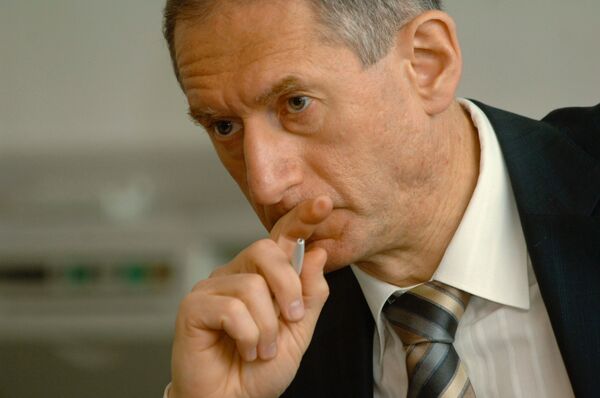MOSCOW, April 4 (PRIME) - Stress tests conducted by the Russian Central Bank prove the country's banking sector could likely handle even the most extreme economic stress, the bank's senior vice president said Friday.
"The preliminary results show an overall resilience of the sector, including in extreme cases," Alexei Simanovsky told reporters.
The regulator stress tests banks twice a year based on two scenarios.
The pessimistic scenario assumes a 1.2 percent contraction in GDP and 20 percent devaluation of the ruble, against the backdrop of a general global economic slowdown, including a 25-30 percent decrease in oil prices.
The extreme scenario assumes a five percent contraction of GDP and a 30 percent devaluation of the ruble.
"In regard to the capital adequacy target, there is a substantial decline against the current level to 10-15 percent," Simanovsky said.
"Talking about capital adequacy under 2 percent, then it's a mere handful of banks with an average 2 percent share in the total volume of assets in the banking sector," Simanovsky added, explaining the numbers are by no means a sign of a critical situation.
As a reaction to the reunification of Crimea with the Russian Federation in mid-March, the US introduced sanctions against 20 Russian citizens and Rossiya Bank. Following this action, the international payment system operators Visa and MasterCard halted client operations for Rossiya Bank, SMP Bank, as well as their subsidiaries Sobinbank and Investkapitalbank with no prior notice. Some of the restrictions were later lifted.
The results of the stress tests announced by the Central Bank may be just the reassurance the Russian banking sector needs in light of the threat of sanctions. The Russian government is currently working on a nationwide payment system as an alternative to Visa and MasterCard to further shield the financial system.

